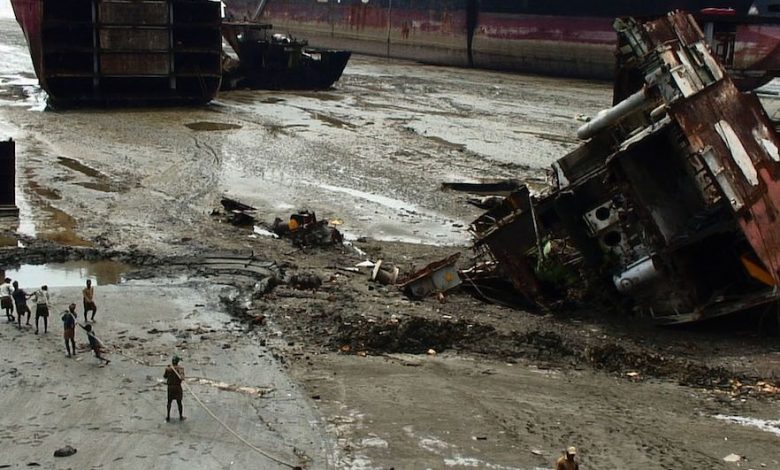
Four in five ships scrapped last year were on the beaches of the Indian Sub-Continent, a statistic one NGO has blasted as “shameful”.
According to new data released by the NGO Shipbreaking Platform, 835 large ocean-going commercial vessels were sold to scrap yards in 2017. 543 were broken down – by hand – on the tidal beaches of Bangladesh, India and Pakistan: amounting to 80.3% of all tonnage dismantled globally.
“The figures of 2017 are a sad testimony of the shipping industry’s unwillingness to act responsibly. The reality is that yards with infrastructure fit for the heavy and hazardous industry that ship recycling is, and that can ensure safe working conditions and containment of pollutants, are not being used by ship owners”, commented Ingvild Jenssen, founder and director of the NGO Shipbreaking Platform. “It is particularly shameful that so many European shipping companies scrap their vessels on beaches. Their obvious lack of interest to ensure that shipbreaking workers around the world enjoy best available technologies, and that the environment is equally protected everywhere, clearly calls for additional pressure from authorities, shipping clients and financers,” she added.
In 2017, at least 10 workers lost their lives at the shipbreaking yards on the beach of Gadani in Pakistan. The NGO also documented 15 deaths in the Bangladeshi yards last year, where also at least another 22 workers were seriously injured. Whilst international and local NGOs were repeatedly denied access to the Indian shipbreaking yards, the platform was informed of at least eight fatal accidents in Alang in 2017.
As in 2016, Germany and Greece top the list of country dumpers in 2017. German owners, including banks and ship funds, beached 50 vessels out of a total of 53 sold for demolition. Greek owners were responsible for the highest absolute number of ships sold to South Asian shipbreaking yards in 2017: 51 ships in total.
The worst corporate dumper according to the NGO was Continental Investment Holdings (CIH), the Singapore-headquartered shipowning arm of Myanmar shipowner Captain U Ko Ko Htoo and parent company of Continental Shipping Line. The company, which is currently changing the composition of its fleet, sold nine ships for breaking on the beaches in 2017. Four vessels ended up in Bangladesh, where in late December, during the demolition of CIH’s Taung Gyi Star, a worker died hit by a falling iron plate.
Ranked in second place, the container shipping giant Mediterranean Shipping Company (MSC) sold seven vessels to Indian breakers.

As long as the shipowners have fiscal responsibility to their shareholders, bond holders and banks they will seek the highest remuneration possible for their disposed vessels. Why is no-one asking how the yards in the Indian Subcontinent can pay the highest rate per ldt? I’m sure if the owners got the same, or similar, returns from the more environmentally friendly yards then they could make a decision based on all the parameters rather than just financial.